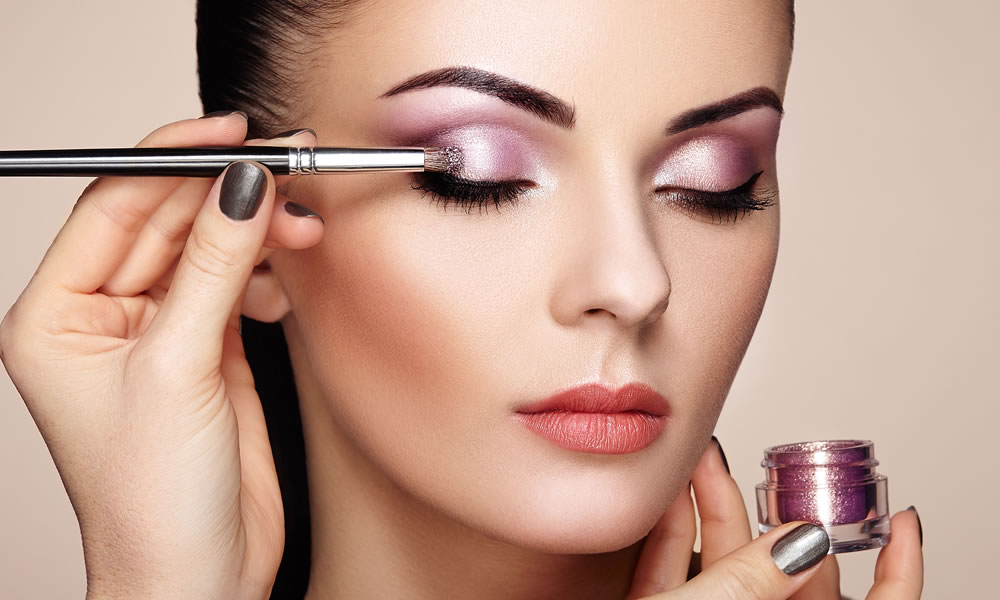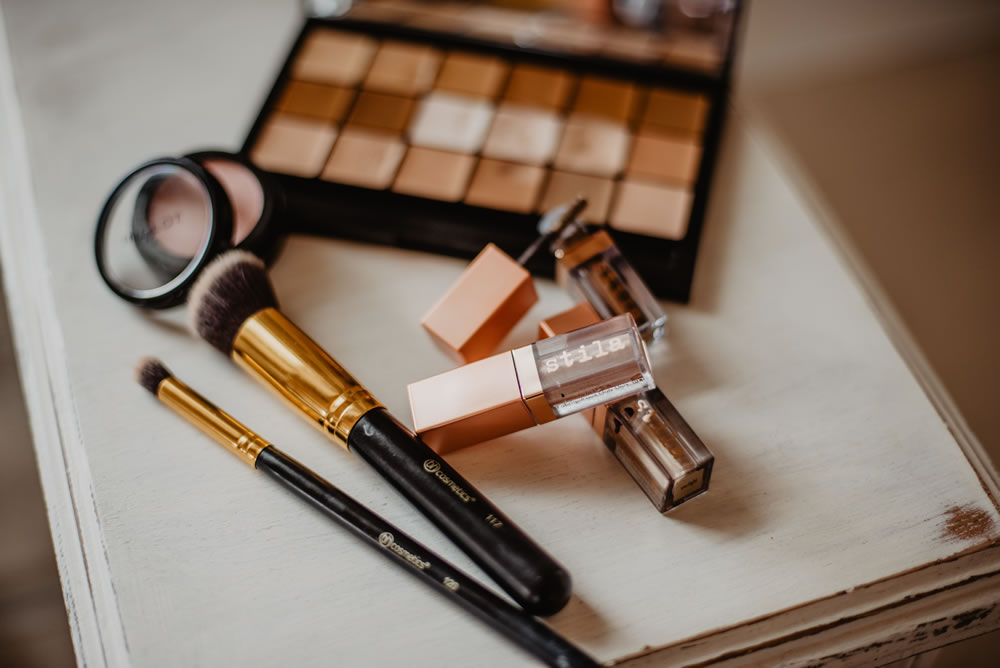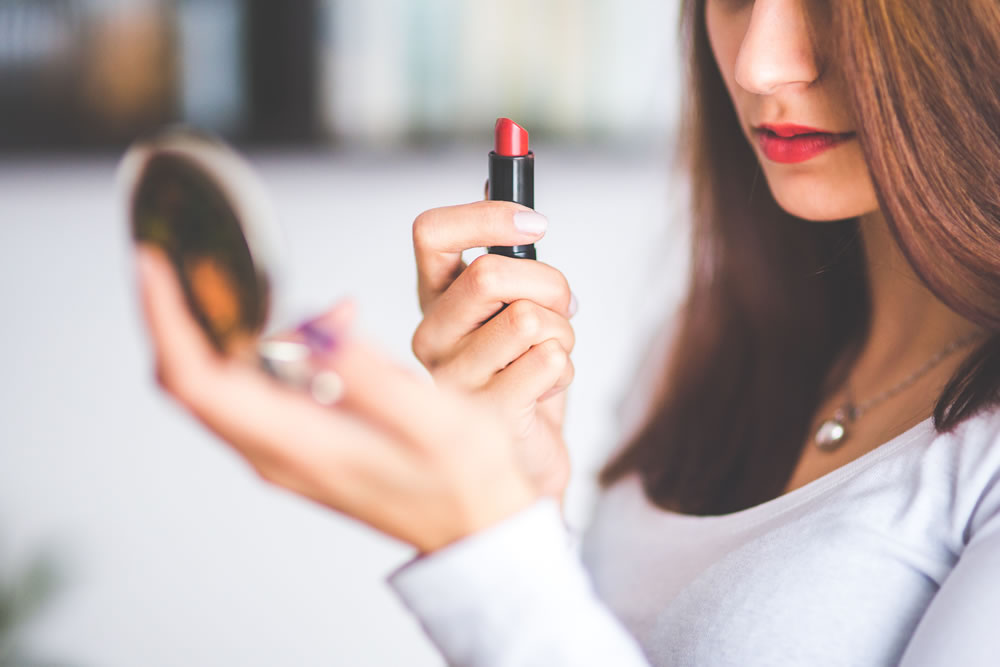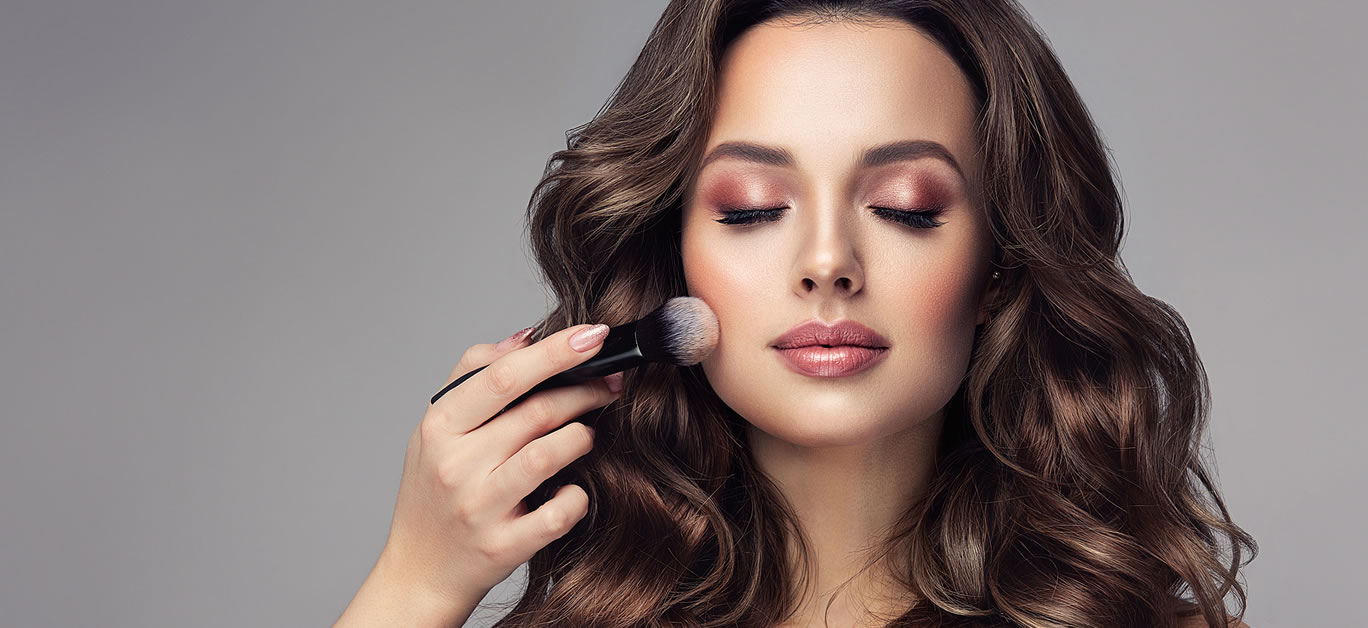Now that we’ve returned to a relatively normal way of life following eighteen months of lockdowns, and office working and social occasions are both firmly back on our schedules, those long, makeup-free days are behind us – and our favourite luxury foundation, lipstick and other essentials have once again become a staple part of our routines.
For many people, makeup is worn daily, and at a time when we are taking more interest than ever in the products and ingredients we consume and put our skin in a bid to maintain optimal health, the question of whether the makeup we use could be having a detrimental impact is one that is increasingly playing on our minds.
As you might expect, the answer is not a clear yes or no, and depends very much on the brands and products you choose – as well as other factors including your skin type, how often you wear makeup and how effectively you remove it each night before bed.
Generally speaking, makeup will not cause any harm, but that is not to say that some problems can’t arise if we don’t pay attention to what we are using and how. Here, we take a look at the need-to-knows for all makeup users to ensure that you are protecting your skin’s health long-term.

What does makeup do to our skin?
There are a variety of different makeups available on the market today, with each aiming to cater to our different skin types, which are broken down into the four main groups of oily, sensitive, dry, and normal.
Understanding your own skin type and choosing products to match will go a long way when it comes to ensuring that your skin reaps more benefits than it does issues from them, ensuring that irritation, extra oiliness and dryness are kept at bay and not exacerbated but rather aided by your makeup’s ingredients.
The main issue that can occur as a result of wearing makeup regularly is clogged pores, which can lead to acne or other skin problems. With this in mind, it’s important to look for non-comedogenic ingredients and to ensure that you thoroughly cleanse your skin each evening to remove product, and then once again to deep clean those pores.
What skin problems are caused by cosmetics?
One of the most common issues caused by regularly wearing makeup is acne cosmetica. This usually results in small bumps on the forehead, chin, or cheeks which can make for an uneven skin tone and often will see users doubling down on their foundation use in a bid to cover it – which can in turn make matters worse.

Irritant dermatitis is another issue to look out for, and is particularly prevalent amongst those who already have underlying skin conditions such as rosacea and eczema to contend with, causing an itchy rash and redness.
It is also possible that you may suffer an allergic reaction to an ingredient in makeup. If you are unsure which product has caused the reaction, try going back to basics and using a small amount, one at a time, to identify the item that is causing the issue. From here, you can look into the ingredients and work out which is the most likely offender, then avoid purchasing products that contain it in the future.
What cosmetic ingredients should be avoided?
It goes without saying that if you have a known allergy or sensitivity to an ingredient, you should avoid using it. However, if you aren’t aware of any sensitivities then knowing what to use and what to avoid can prove more difficult.
As a general rule, avoiding long ingredient lists and opting for products containing more natural and organic ingredients tends to help, while known irritants like mineral oils and sulphates should be kept to a minimum.
The biggest cause of contact sensitivity or allergic reactions in cosmetics is from preservatives and fragrances, so searching for fragrance-free, hypoallergenic, or non-comedogenic makeup should be the first port of call when it comes to helping you to steer clear of any issues.

The final word
While makeup can cause a multitude of skin issues if not used correctly and without a thorough skincare regime in place, doing your research beforehand to ensure you’re giving your skin what it needs – and avoiding what it doesn’t – will go a long way towards keeping any issues at bay, leaving you free to enjoy getting glammed up without any fear of repercussions.
Nowadays, you can shop by skin type at most good cosmetic sites – Skinsider is a good place to start. Using the right products for your skin can make the world of difference, so if in doubt, enlist the help of a consultant at your favourite luxury beauty counter, who will be able to perform a quick assessment and advise you on where to start.
Keeping your face clean from dirt is also really important – makeup should not be worn for long periods of time, so if you have the opportunity to go bare-faced from time to time – for example, when you’re working from home – then make it a priority to do so. You should also ensure you remove your makeup before bed, regularly clean your makeup brushes and sponges and avoid using expired makeup or wearing it when working out.
For those looking to learn more about makeup and cosmetics, Prevail Beauty offers custom online virtual beauty lessons to help you develop your skills and knowledge.






















